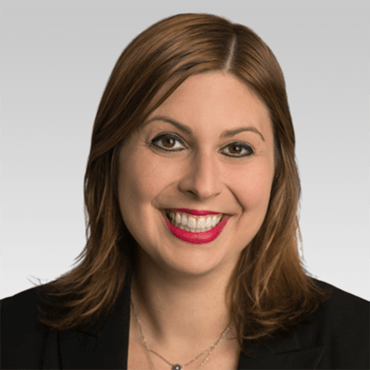
The average tenure of DC plan providers is currently 7.4 years, making the opportunity to win business from new 401(k) plans rare. There is more at stake in the final RFP process than ever before, and providers must be ready to make a lasting impression when given the chance.
This year’s Retirement Plan Advisor Trends™ study includes a dozen in-depth interviews with DC advisors with recent RFP experience to uncover why plan providers and DC investment managers didn’t ultimately win the business after making it to the final round.
For DC plan providers, beyond being disqualified for having high costs/fees, finalists were often cut from further consideration based on other key factors firms have more control over. DC advisors have shared that some finalists didn’t appear to really “want the business” or failed to create strong relationships or a sense of partnership with them by not being readily accessible during the evaluation process.
- “Everybody swims in different plan-sized ponds and some plan providers are going to jump at the opportunity to pick up a $7 million 457 plan and others are not going to get out of bed for anything less than $50 million. I think that was reflected in the pricing of the RFPs that we got.” –Independent, $25M–<$35M
In other cases, DC advisors said cuts came down to DC plan providers not having an open architecture, not having an appealing fund lineup or not being a familiar-enough brand.
- “The [industry leaders], those companies were all eliminated right out of the gate because they were using their own underlying investments, their own portfolio, and that was something that I didn’t want to see.” –National, $50M+
- “I think we ended up getting and viewing quotes from [provider]. Just a lack of personal experience maybe with their offerings; they were close on cost but I guess reputation prevailed for Empower over that.” –Independent, $25M–<$35M
Meanwhile, when vetting new DC investment managers and funds, DC advisors were most attentive to fund category, investment performance, risk level and overall cost. Outside of being flagged as less competitive in terms of performance and cost—the most ubiquitous reason for passing on a potential firm—common pitfalls stem from concerns around the investment approach or risk management. . In fact, a number of DC advisors eliminated funds deemed overly aggressive for inclusion on a retirement plan lineup.
- “A couple [funds] were a little bit more aggressive, so the returns were more boom or bust …. Nobody in a defined contribution plan says, ‘The market was up 20 and I’m only up 18.’ If the market’s down 20 and they’re down 30, that’s when an employer has a problem.” –Regional, $25M–<$35M
- “I am looking for that long-term, proven, consistent, very balanced .… Staying away from … ‘trendy,’ ‘momentum.’ Anybody that describes their method in those words … very much has me stay away. I’m much more interested in the long-term value and those kinds of concepts.” –RIA, $10M–<$25M
In addition, advisors were concerned with fund management being in flux such as portfolio manager turnover or a shift in the team investment approach.
- “[For one option], the manager was going to turn over shortly. He was going to retire. They were good enough to tell me that, but that immediately disqualifies them.” –Regional, $25M–<$35M
Of course, DC advisors were also asked to elucidate on what ultimately differentiates the winning firm from the competition. Key criteria for selecting plan providers pivot upon being a trusted, proven brand that’s customer-centric, being an ideal fit within an existing fund lineup, and showcasing strong risk-management practices for DC investment managers.
- “Ascensus is a platform that I’m very well-versed in …. I have a great relationship with the person who works at the company, all the way up to, I’ve dealt a couple of times with the CEO …. It makes working with them very, very easy, and my clients benefit from that ease of use.” –National, $50M+
- “I’m looking for a firm that consistently hits singles and doubles rather than always trying to hit home runs …. We’re looking to minimize volatility and risk as much as possible.” –RIA, $50M+
Ultimately, there are many factors that drive a plan advisor to consider and choose a provider. Understanding these unique drivers of consideration, satisfaction and loyalty for plan providers and DC investment managers will help firms position themselves to win business when given a chance at bat. Our Retirement Plan Advisor Trends report gives firms an in-depth understanding of the attitudes and preferences of the most critical players in the distribution of DC plans. Click below to learn more.








